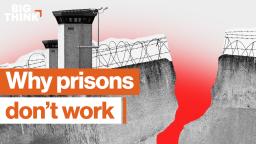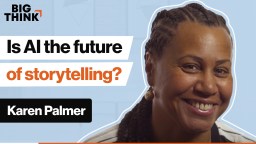criminal justice
Soviet researchers studied crime through a Marxist-Leninist lens. Under Lenin, a humanitarian approach to criminality briefly emerged, but dissipated when Stalin rose to power.
A new study suggests that private prisons hold prisoners for a longer period of time, wasting the cost savings that private prisons are supposed to provide over public ones.
The US prison system continues to fail, so why does it still exist?
▸
18 min
—
with
The idea behind the law was simple: make it more difficult for online sex traffickers to find victims.
A new look at existing data by LSU researchers refutes the Trump administration’s claims.
This week, Big Think is partnering with Freethink to bring you amazing stories of the people and technologies that are shaping our future.
▸
6 min
—
with
What do we want to do with convicted criminals? Penology has several philosophies waiting to answer that question.
The Labour Economics study suggests two potential reasons for the increase: corruption and increased capacity.
Remaining silent is being complicit.
We’d like to think that judging people’s worth based on the shape of their head is a practice that’s behind us.
In classical liberalism, justice leaves society better off by providing a chance for a better life.
▸
9 min
—
with
In classical liberal philosophy, individual pursuit of happiness is made possible by a framework of law.
▸
with
A truly diverse society exudes open-mindedness, not just reluctant acceptance of differing viewpoints.
▸
7 min
—
with
Laws can’t stand by themselves. Professor James Stoner explains why.
▸
4 min
—
with
Those who think they’re better at lying than average seem to have a few things in common.
Can technology act as a feedback loop for human emotions?
▸
3 min
—
with
Dr. Joel Smithers was recently sentenced to decades in prison for the numerous illegal prescriptions he gave out.
Some critics say the move is designed to shield those who profited from the dangerous drug.
Until the use of prison labor is banned, many stakeholders will be incentivized to prevent felons from being rehabilitated.
President Trump has called for Silicon Valley to develop digital precogs, but such systems raise efficacy concerns.
How much bravery can and should we expect from police officers?
In any sufficiently large protest, police officers may “kettle” protesters. Critics say it violates human rights, while advocates claim its one of the few safe tools available to police during a protest.
Couples who use marijuana experience greater intimacy.
What happens to a person’s identity when they are forced to play a hypermasculine role just to survive?
“Prohibitionist strategy is unsustainable,” reads the policy plan.
It marks a major shift in the government’s battle against the opioid crisis.
The U.S. has a talent shortage and the formerly incarcerated have paid their debt to society. Let’s solve two problems with one idea.
▸
5 min
—
with
The Canadian professor calls for personal responsibility over legislation.
Climate change is a dire threat, perhaps it is time to put the people who created and denied the problem on trial?





























